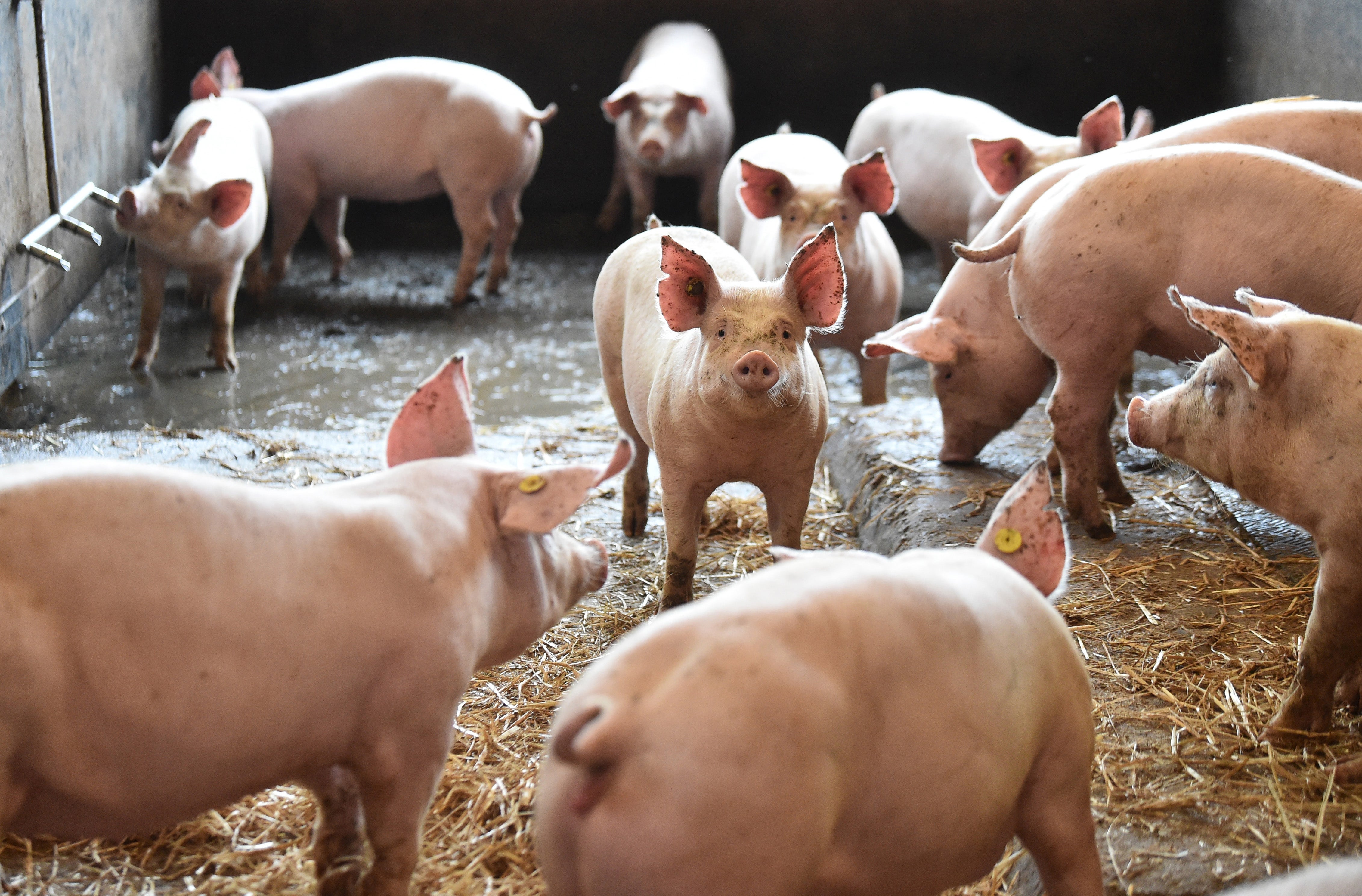Brexit trade deals could force UK farmers to cut animal welfare standards, critics warn as EU bans antibiotics
Efforts to cut antibiotic use on farms must be reinforced by new laws, campaigners tell Holly Bancroft


Post-Brexit trade deals present a “real risk” to UK farming standards, campaigners have warned, as the EU introduces tough new restrictions on the use of antibiotics on animals.
The UK has failed to follow the EU in new legislation introduced on Friday that curbs the routine use of antibiotics on farm animals. Animal rights and medical campaign groups have warned that the UK have been left “exposed” with “weaker rules”, which would lead to further deadly antibiotic-resistant infections.
However livestock industry chiefs have said that the UK does not need blanket regulation on use of the drugs and said that producers will maintain their high standards.
Environmental campaigners said that if the government pursues a trade policy that cuts tariffs on the imports of meat and dairy produced with high antibiotic use, then British farmers might feel compelled to reduce their own animal health standards and increase use of antibiotics.
Rob Percival, from the Soil Association, told The Independent that trade deals presented a “real risk that we get caught in a race to the bottom if we start importing lots of cheap, intensively farmed meat”. He added: “That will undercut UK producers and could well prompt an ongoing process of intensification here; where instead of raising standards and reducing antibiotic use we do the opposite.”
The UK is much further ahead in reducing antibiotics use on farms than much of the European Union, and total use across all farm animals fell by 52 per cent between 2014 and 2020.
Richard Griffiths, of the British Poultry Association, said “blanket regulation” on antibiotics was not needed in the UK because “we are not at the beginning” of tackling the issue. However he agreed that the industry should be worried about allowing lower standard food imports into the UK in case it “created an environment where it is either compete directly or not survive”.
He added: “On antibiotics specifically, we are in a position where we are not going to backtrack on anything we have achieved so far.”
Chris Lloyd, secretary general of the Responsible Use of Medicines in Agriculture alliance, told Farmers Weekly that the farming sector would not “stoop to using antibiotic growth promoters”. He added: “We should be celebrating the huge strides that British farming has made to reduce its antibiotic use.”
But others are worried about how the progress made by British farmers can be safeguarded, when new trade deals are made.
Lindsay Duncan, from animal welfare organisation World Animal Protection, used the government’s recent Australia trade deal as an example. She said: “In the Australian trade deal, their produce doesn’t need to meet our welfare or antibiotic use standards.
“Because of trade and travel, antibiotic-resistant super bugs are not going to pay attention to country borders – this is a global issue. What the EU legislation is doing is ensuring that they are putting pressure on countries that they are importing from to also raise welfare and lower antibiotic use. Our trade deal isn’t doing that, unfortunately.”
The EU rules, introduced on Friday, ban the import of animal produce reared with antibiotic growth promoters.
“Just as the EU is banning the importation of this sort of food, the UK may be moving in the opposite direction unless it starts putting news rules in place itself,” said Cóilín Nunan, scientific adviser to the Alliance to Save Our Antibiotics.
He added: “Over 40 countries worldwide still use antibiotics for growth promotion and if tariffs are lifted on those products it may become a lot more competitive for them to export to the UK. Farmers in the UK, who have voluntarily taken action on their antibiotic use, may feel like they need to up their antibiotic use to compete.
“This is why we need government policy, like that made in the EU, to support the actions that farmers have already taken.”
Campaigners also argue that the use of low-doses of antibiotics on farm animals needs to be reduced much further in the UK, particularly in intensive pig production.
“Antimicrobial resistance is an accelerating global health crisis, and investors across the market have welcomed the EU’s ban on the routine use of antibiotics in farmed animals, but there is currently a lack of clarity on whether the UK will ultimately adopt the new regulation,” Maria Lettini, executive director at FAIRR, an environmentally focused investor network, said.
“The UK has the lowest antibiotic use in the G7. But there are real concerns that a lack of regulation to reinforce this progress might put those high farming standards at risk, especially as Britain considers trade deals with countries such as the US and Brazil.”
A Veterinary Medicines Directorate spokesperson said: “We are currently reviewing the regulations and will set out proposed changes as part of a public consultation during 2022.
“We are committed to reducing unnecessary use of antibiotics in animals and it remains our intention to strengthen our national law in this area.”
Join our commenting forum
Join thought-provoking conversations, follow other Independent readers and see their replies
Comments
Bookmark popover
Removed from bookmarks